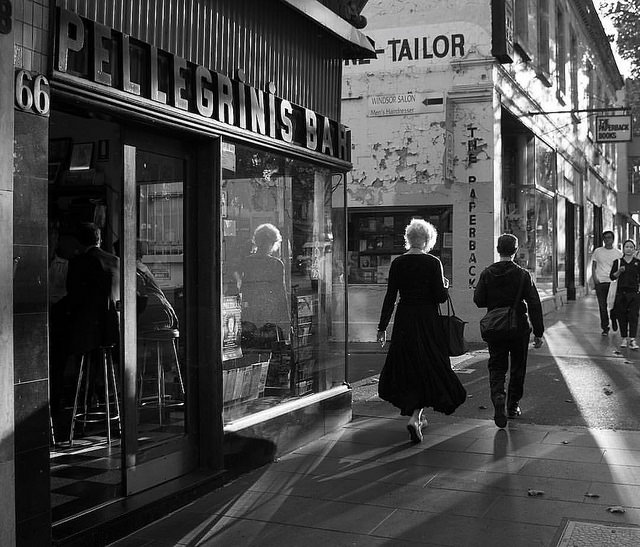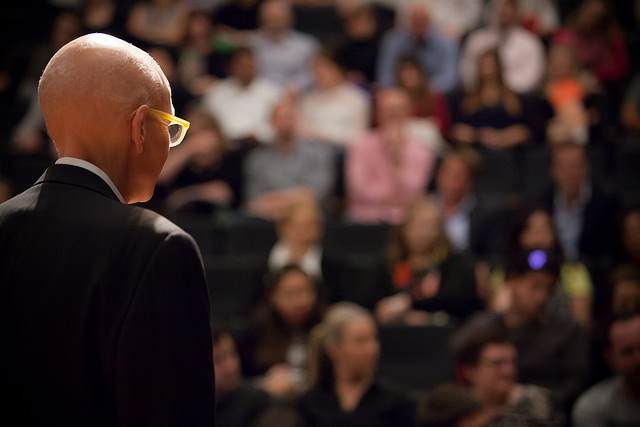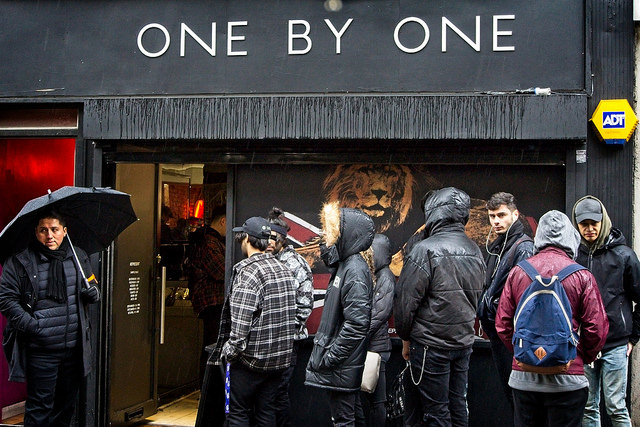Unlock the Magic in Your Story Now
Get the Free 20 questions to Ask Before Launching Your Idea workbook when you sign up for occasional updates.
Get the Free 20 questions to Ask Before Launching Your Idea workbook when you sign up for occasional updates.
Articles filed in: Strategy
The Shorthand Trap

Everywhere we look in our digital world we increasingly see options to choose digital shorthand over a handcrafted, personal response. Gmail’s Smart Reply and Smart Compose features for responding to emails, and LinkedIn’s convenient Quick Replies will save us time today, but what might they cost us in the long run? Who do we become when we allow ourselves to communicate on auto-pilot instead of thoughtfully, with humanity?
Emoji are convenient and getting to inbox zero feels good. But if we don’t take time to find the words to say what we mean what do we sacrifice?
There is not shorthand for caring. No substitute for deep connection. There is no shortcut either.
We have to do the work of being the kind of people who make the effort to build the relationships we want if we are to create the future we want to see. What if we saw communicating longhand as an opportunity?
Image by Garry Knight
A Deliberate Advantage

Voting is compulsory here in Australia. To make it easier for people polling places now open the weekend before election day. Early voting in our state and local council elections opened last weekend. As we lined up at the entrance to the polling place we were met by representatives of all candidates and parties. Each one tried to thrust a marketing leaflet at us as we passed them, in a last-ditch attempt to get our vote. The only thing to differentiate one candidate from the other was the colour of their shirt or the arrangement of the words ‘people’ and ‘power’ on the brochures.
It’s true that sometimes people don’t decide who to vote for until the last minute. Last minute votes can count. But they don’t build a sustainable advantage or a loyal following over time. Whether we are in politics or business, the real work we do is to show up for the right people consistently, so they know what we stand for, every day—not just on voting day or launch day.
Our goal isn’t to be chosen at random because of the colour of our shirt or a single snappy slogan. It’s to be deliberately sought out again and again for our service, our values and the way we empower and impact the people we serve.
Image by Drew
Becoming Better Storytellers
filed in Marketing, Storytelling, Strategy

We’ve all heard the news that attention spans are shrinking. We’ve come to believe that the people we’re trying to reach are always distracted. If that’s so, how do we explain the rise of binge-watching, the success of serialised podcasts and long read articles? What we’re witnessing isn’t just a shift in the way content is consumed. It’s a change in the intention and behaviour of both audiences and content creators according to their preferred platform or media.
The goal of prolific tweeters and grammers is to distract, rather than to immerse their audience. People visit Twitter and Instagram when they want to be distracted. Steaming services want to keep us watching. Their intention gives rise to the creation of engaging content and better storytelling.
How we tell stories changes how people react and respond. How audiences react and respond changes the kinds of stories we tell.
We become better storytellers by knowing who we are and who we want to be to whom. Purposeful storytellers are intentional about the impact they want to have and the messages they choose to send.
How We Do Matters
filed in Storytelling, Strategy
 One of the owners of Melbourne’s most iconic café died tragically a week ago. Sisto Malaspina had been serving espresso to Melburnians at Pellegrini’s since 1974. Tributes poured in from across the community about the impact he and his café had on people and the city. The one that struck me was the story told by a man who arrived in Melbourne to start a new job, with little more than the clothes on his back. When he asked people where he should eat, they said, head to Pellegrini’s. They will feed you like family. Like family.
One of the owners of Melbourne’s most iconic café died tragically a week ago. Sisto Malaspina had been serving espresso to Melburnians at Pellegrini’s since 1974. Tributes poured in from across the community about the impact he and his café had on people and the city. The one that struck me was the story told by a man who arrived in Melbourne to start a new job, with little more than the clothes on his back. When he asked people where he should eat, they said, head to Pellegrini’s. They will feed you like family. Like family.
Making people feel like family was intentional, a choice Sisto and his team made every day.
A choice his business partner and his team will continue to make now he’s gone.
Image by David Brewster
This IS Marketing
 As I boarded the long-haul flight, I kept my fingers crossed that I’d get some sleep before we landed. So it was a relief when my fellow passenger, Don, declared his intention to do the same. We agreed that we weren’t anti-social, just two pragmatists trying to come away from the journey in the best shape we could. But halfway through dinner, probably as we were flying over Singapore, my travelling companion seemed to change his mind. Don started opening up about the difficult meeting he was heading to as soon as we landed the next day. He and his business partners ran a successful engineering company, but they couldn’t agree on the best strategy for ensuring its sustainable growth. Don was worried about what would happen next. He sensed trouble ahead.
As I boarded the long-haul flight, I kept my fingers crossed that I’d get some sleep before we landed. So it was a relief when my fellow passenger, Don, declared his intention to do the same. We agreed that we weren’t anti-social, just two pragmatists trying to come away from the journey in the best shape we could. But halfway through dinner, probably as we were flying over Singapore, my travelling companion seemed to change his mind. Don started opening up about the difficult meeting he was heading to as soon as we landed the next day. He and his business partners ran a successful engineering company, but they couldn’t agree on the best strategy for ensuring its sustainable growth. Don was worried about what would happen next. He sensed trouble ahead.
After he realised he’d been talking about himself for quite some time, Don apologised and asked the question we, especially us marketers, love to hate. ‘So, what do you do?’ It’s always easier to answer this question if your job title is your job, even if the title doesn’t convey your contribution to your community and the world. As marketers, many of us have the added problem of almost feeling ashamed of the answer. When I told Don I worked ‘in marketing’ his posture shifted.
‘Oh, that’s all just smoke and mirrors,’ he said.
The irony, of course, is that we’re all ‘in marketing’. Don is too. Marketing isn’t only about selling. Marketing is about helping. It’s about having the courage to show up with vulnerability. It’s about telling stories that change people. It’s about helping them to make decisions they won’t later regret. Marketing done right is an act of generosity. It’s work that matters for people who care. But that’s not the marketing most people experience and not the kind of marketing many people practice. It’s up to us to do better. To do marketing we’re proud of. Because we can.
If you’re on a quest to do work that matters for people who care and if you want to be a proud marketer, then Seth Godin’s new book This Is Marketing is for you.
It’s impossible to quantify the impact Seth’s work has had on millions of people around the world. People like you and me. I wish I’d had a copy to Seth’s new book to give to Don on that flight. I know it would have helped him and his colleagues reach the place they wanted to go. I know it will help you too.
The Right Customer
filed in Marketing, Storytelling, Strategy
 A lot has changed in the six months since I last walked through the Melbourne suburb of Albert Park. New cafes have opened. Others have closed their doors. Some established cafes have queues of people waiting for tables, while several, just a few hundred metres down the street, are empty.
A lot has changed in the six months since I last walked through the Melbourne suburb of Albert Park. New cafes have opened. Others have closed their doors. Some established cafes have queues of people waiting for tables, while several, just a few hundred metres down the street, are empty.
There’s no doubt that the best business ideas are a combination of the right product, launched at the right time. But even if a product or service ticks those two boxes, its success and longevity are still dependent on attracting and retaining the right customers.
We spend a lot of time thinking about and working on products and services, fixtures and fittings, design and marketing. We don’t spend enough time getting clear on who our ideal customer is, what they want from us today, and what will keep them coming back tomorrow. We can only begin to tell our story effectively when we understand the story of the person we’re trying to attract and delight. Who exactly is your right customer and why will he choose you?
Image by Garry Knight
The Feeling Customer
filed in Marketing, Storytelling, Strategy

One of the mistakes we make when we’re building a business and communicating our value is to only create for the thinking customer and his rational mind. Messages that resonate deeply connect with people’s feelings. Beloved brands and successful businesses appeal to their customers’ hearts, not just their heads. Wants and needs. Dreams and requirements. Desires and demands. Apple resonated by using design. Starbucks did it with rituals. Airbnb leveraged belonging.
We don’t just persuade people to act. We move them to act.
How are you serving wants as well as needs?
Image by Garry Knight
Adding Value By Subtraction
filed in Innovation, Strategy, Success

When we’re innovating a product or iterating a service, we tend to add value by introducing features and benefits. But more isn’t always better.
Sometimes improvements and progress are made by removing things that people wouldn’t miss.
What could you subtract or stop doing to improve your product or service?
Image by Garry Knight
One Of The Few

Few organisations look past the data to see the humanity of the client behind the numbers.
Few companies act as if it’s a privilege to serve their customers.
Few people take time to listen twice as much as they speak.
Few products are made with love.
In a world where we are doing our best to fit in, it’s easy to fall into the trap of emulating what most people are doing. We make our biggest contribution when we dare to do what only a handful will do. Being one of the few is underrated.
Image by Garry Knight
Seeing And Hearing Vs. Being Seen And Heard
filed in Marketing, Storytelling, Strategy

As children, we know that understanding what motivates our audience is the shortcut to getting attention. We seem to unlearn this ability to be empathetic communicators when being seen and heard becomes our main driver.
We have a better chance of being heard when we understand what the people we’re speaking to are open to hearing. We do that by asking ourselves better questions.
Four Important Messaging Questions
1. Who is this information for?
2. What do we want them to know?
3. Why do they need to know this?
4. What do we want them to do next?
Communication isn’t only about finding the right words.
It’s about finding the right reason to say them.
Image by Garry Knight